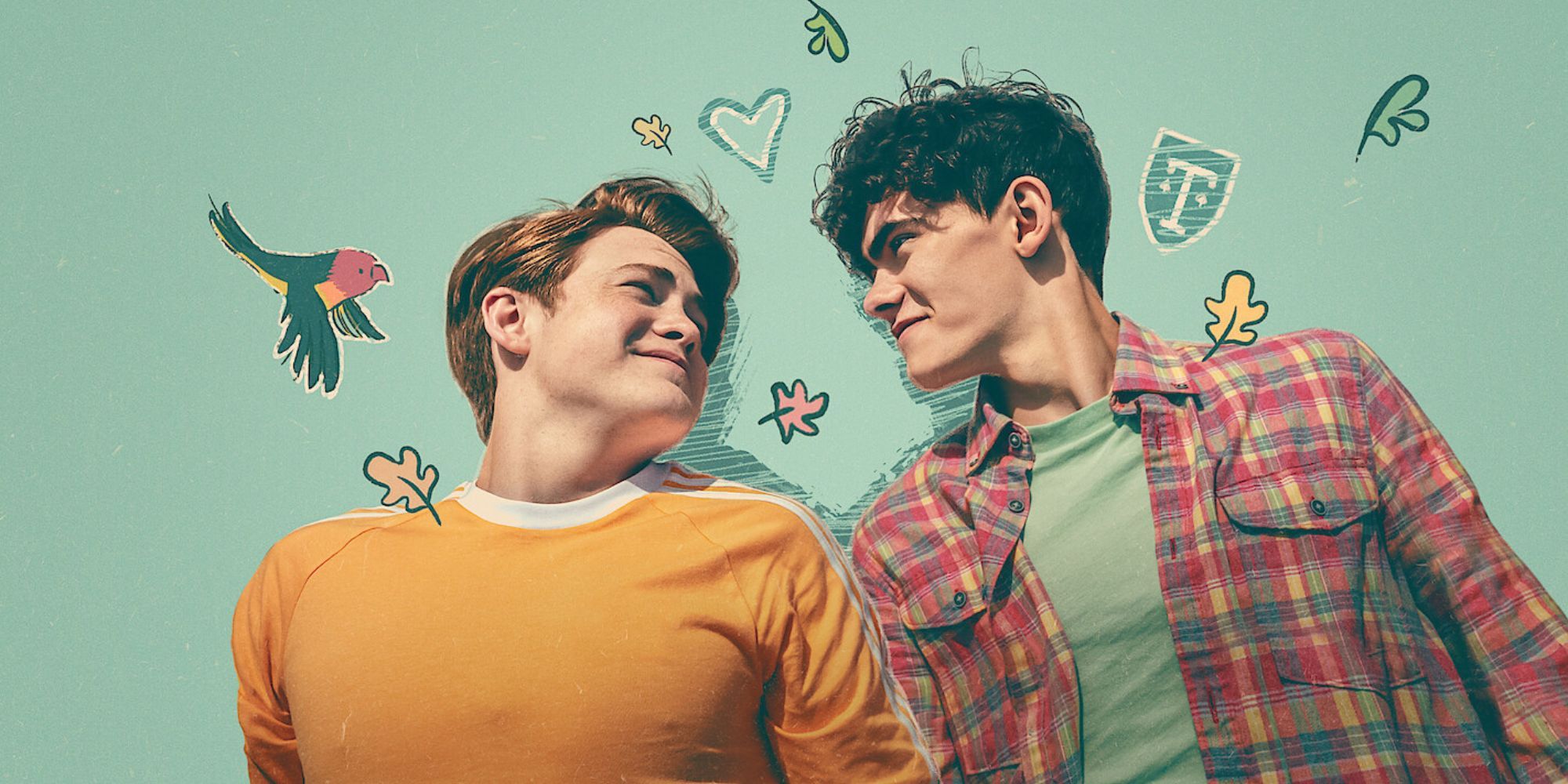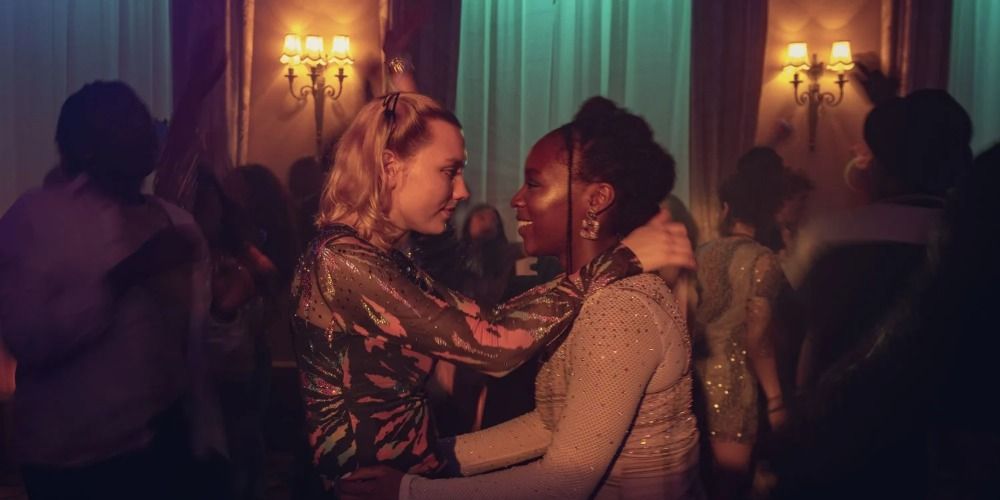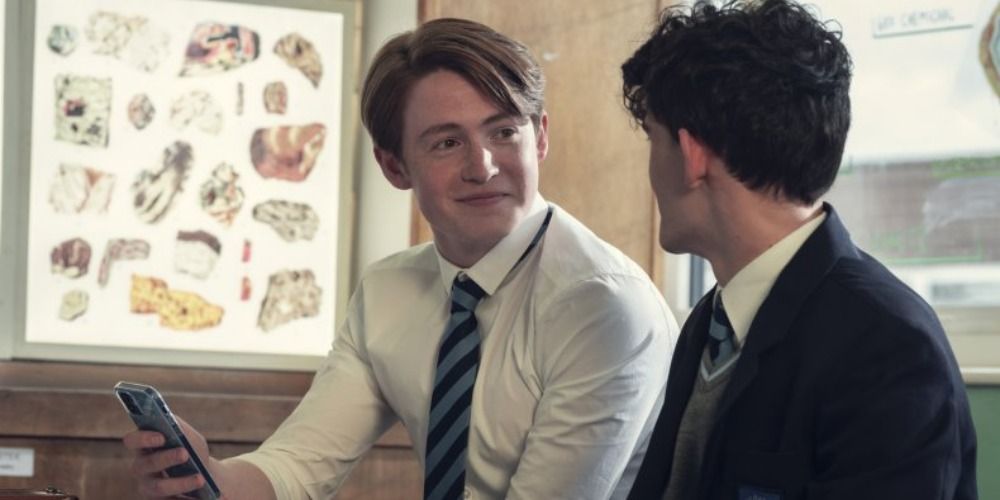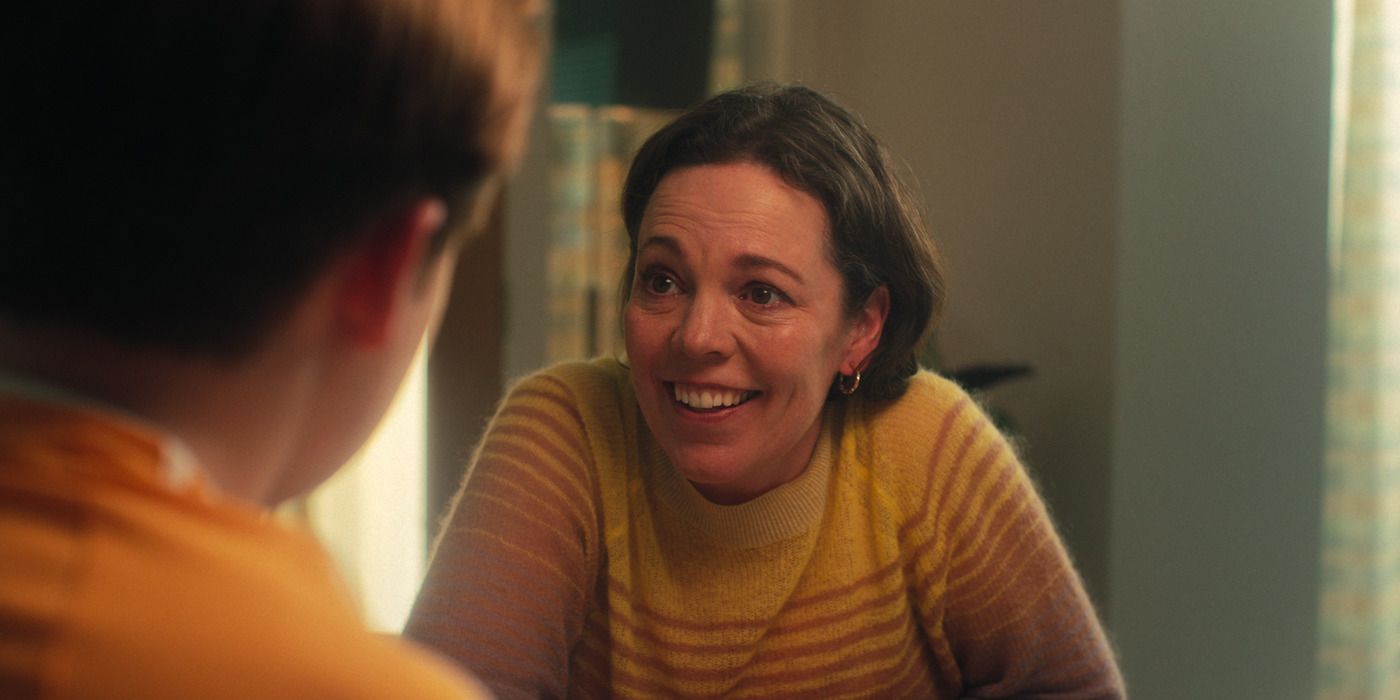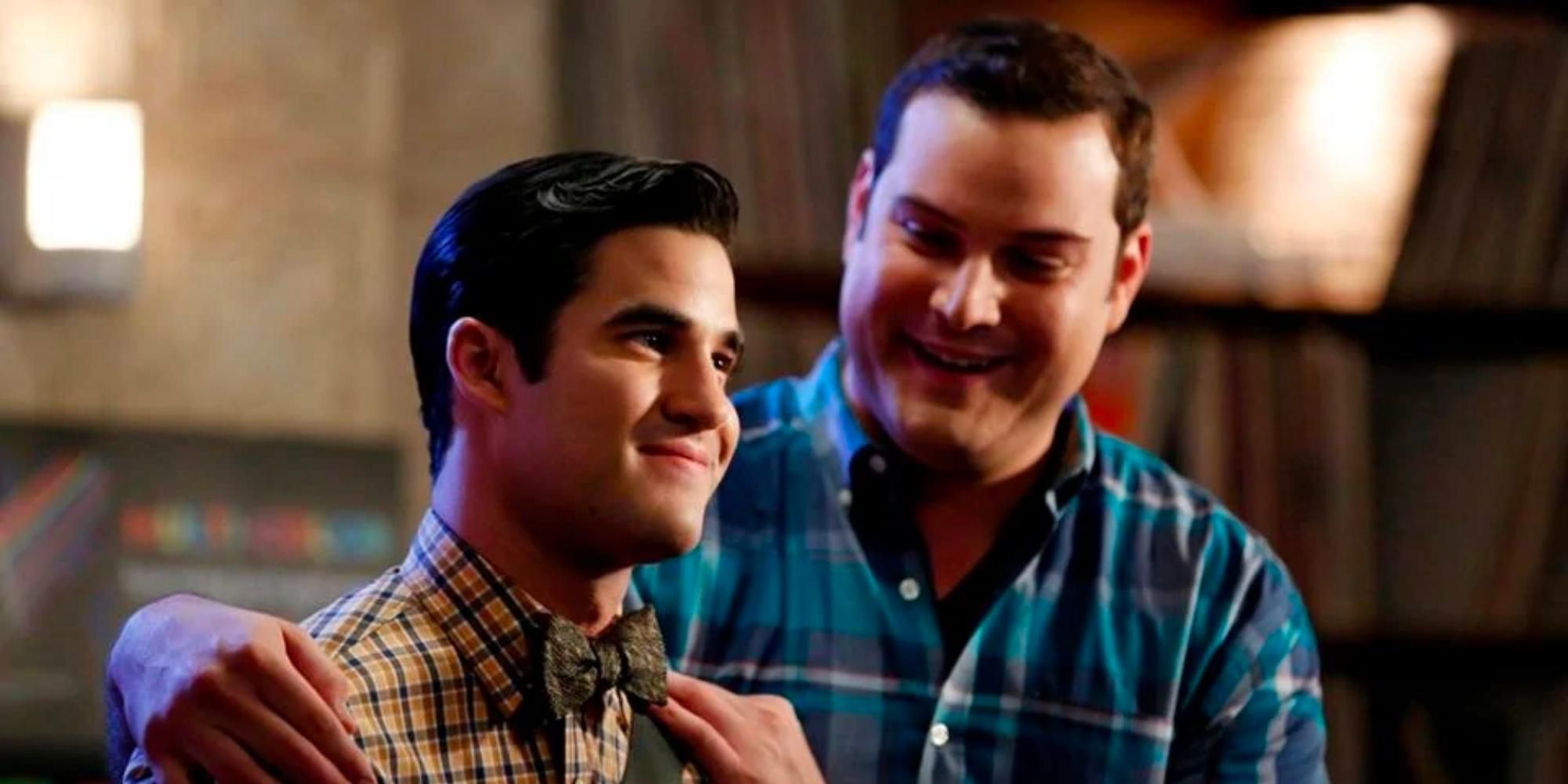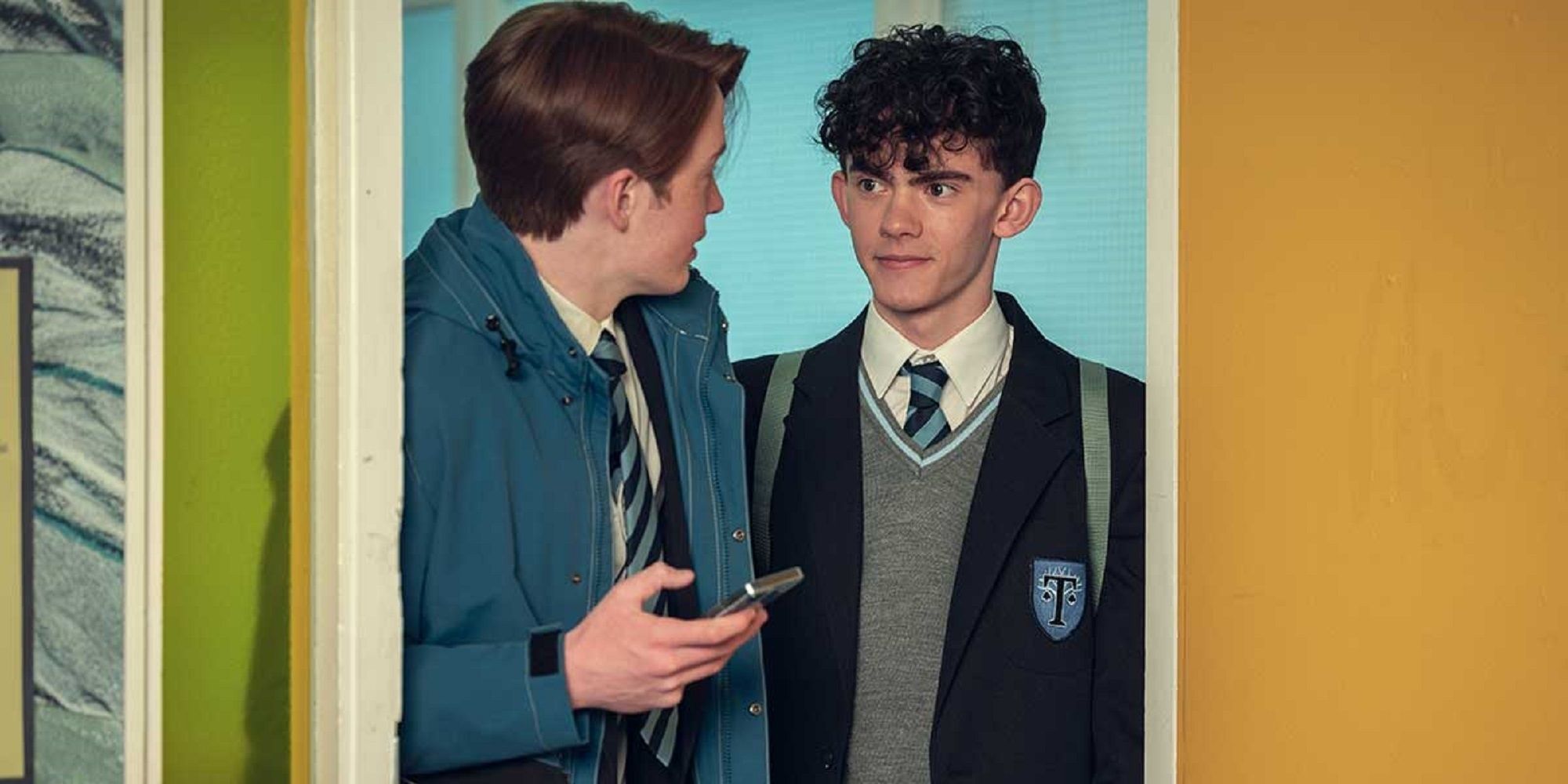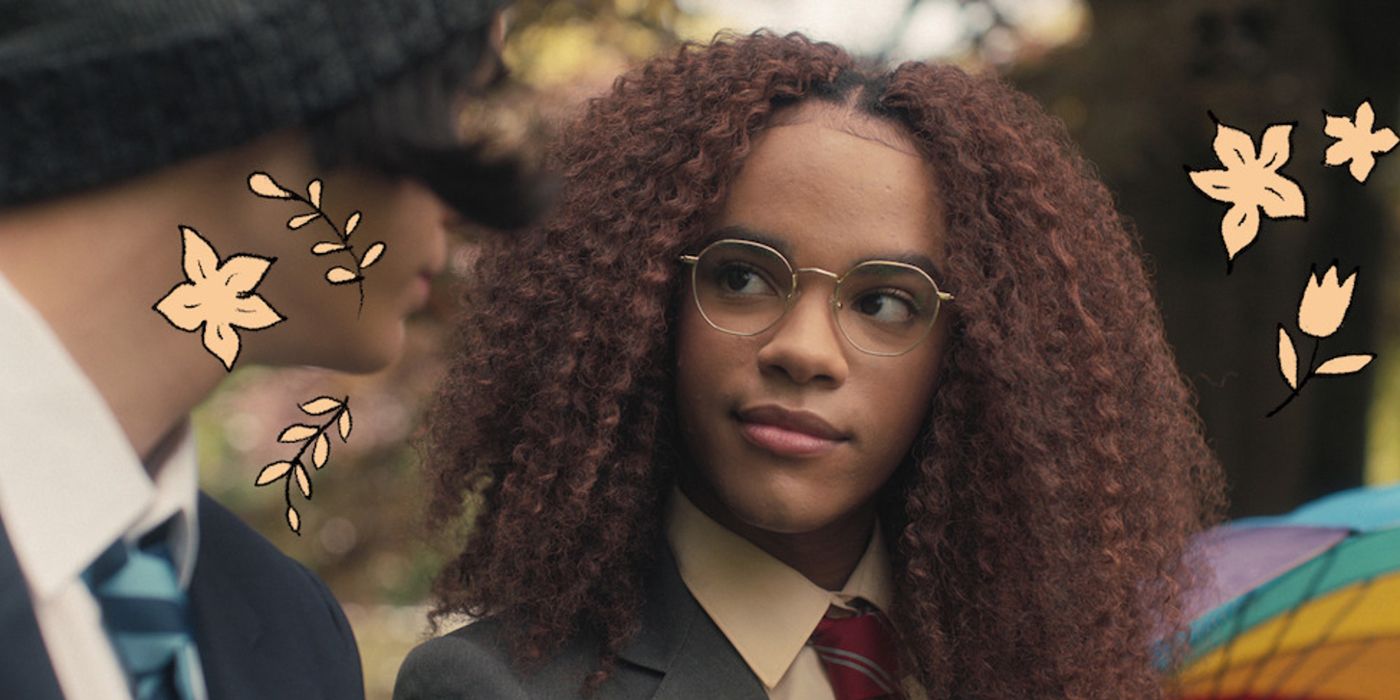With an impressive 8.8/10 rating on IMDb, there's a clear front-runner for the title of Netflix's best series of 2022. From humble beginnings on Tumblr, Alice Oseman's webcomic-turned-graphic novel series exploded onto the global literary scene.
Unlike some preceding romance genre phenomenons, like Twilight and Fifty Shades of Grey, Heartstopper is refreshing and beautifully unproblematic. When Netflix quickly acquired the rights to produce a television series, it was much to fans' relief that they chose to retain the authentic, inclusive nature of the story. Through honest representation, Heartstopper thoroughly dismantles common stereotypes.
The following article contains spoilers for the first season of Heartstopper.
No Toxic Relationships
Unlike other television series that feature queer love, Charlie (Joe Locke) doesn't end up in an abusive relationship. He even frees himself from the clandestine claws of Ben Hope (Sebastian Croft) when he declines to be with someone who refuses to acknowledge him in public.
It would have been easy and lazy writing to place Ben and Nick (Kit Connor) in an honor-fuelled brawl for Charlie's heart, but in removing toxic masculinity and tired love triangles from the narrative, Charlie is allowed to be a timid person, but he isn't portrayed as weak. This acknowledgment of self-worth is seriously lacking in coming-of-age and queer stories. Hopefully, seeing Charlie stand up for himself gives many viewers the confidence to do the same.
The "Straight Boy" Isn't Straight
One of many misconceptions about queer people, and gay men, in particular, is that they pine over straight men. While crushes happen to all of us, pursuing someone who is not romantically interested in us is a self-esteem issue, not a queer one.
Better yet, Nick identifies as bisexual. Despite making up the majority of the queer community, bisexuality is still far less likely to be openly discussed or even acknowledged on television. Heartstopper halts biphobia in its tracks by having Nick emphasize to his mother that he is specifically bisexual.
The Parents Love Their Queer Kids
Contrary to popular portrayal, there are a lot of parents out there who love their kids regardless of their sexual identity. While the statistics around LGBTQIA+ homelessness and displacement are devastating, constantly showing families rejecting their children in the media normalizes it. The fact is, it isn't normal to abandon your child.
In featuring the sweet, slightly awkward moment that Nick comes out to his mother, and the very normal conversations had in Charlie's home, it is plain for viewers to see that they can be themselves at home. Sexuality is just a piece of the giant puzzle that makes a human being. It's about time queer stories allowed their protagonists the dignity of existing in peace.
Avoiding a "Karofsky"
Former "Gleeks can testify that there were few storylines as deeply upsetting and, quite frankly, insulting as when Blaine began dating Karofsky. In short, the bully who physically and emotionally abused Kurt, Blaine's recent ex-boyfriend (and soul mate), turned out to be a self-loathing homosexual. Did this excuse his behavior? Of course not! Similar to the handling of Bryce Walker in 13 Reasons Why giving a genuinely horrible character unearned forgiveness is not good storytelling.
Worse still, when Glee blamed Karofsky's violence on inner turmoil over his sexuality, yet again the queer character became the bad guy. In Heartstopper, Ben is allowed to be both closeted and a bad person without the narrative, turning him into an evil gay villain. Some people are selfish, and redemption should be earned. Only time will tell if Ben is worthy of one...
Healthy Communication Exists
Is there a single person born after 1990 who hasn't been accused of wasting their life behind a screen? Probably not. The funny thing is that being chronically online has fine-tuned our ability to communicate. Gone are the days of missed letters (The Notebook) or waiting by the landline for a phone call (He's Just Not That Into You). No wonder romantic comedies aren't what they used to be - we can text!
Texting and social media are used throughout Heartstopper to show the natural connection Nick and Charlie build as they get to know each other, just like every other couple these days. When there's a misunderstanding, like when Charlie hears Nick is going on a date with Imogen, they talk about it, and Charlie understands the awkward situation. Teen and queer relationships are too often shown in a negative, drama-filled way. The way Charlie and Nick talk to each other is how all partners should — with kindness and respect.
Elle is Trans
Following in the fine footsteps of Laverne Cox in Orange Is the New Black, Yasmin Finney is a Black trans actress playing a Black trans character — as it should be. Unfortunately, even as recently as 2015 (Eddie Redmayne in The Danish Girl and Elle Fanning in 3 Generations), trans actors have been overlooked in favor of cisgender actors, which adds another layer of erasure to the community they're supposed to be representing.
Finney began documenting her life in Manchester, England, on TikTok and soon gained a considerable following. From there, she was cast in Billy Porter's What If? (although Covid-19 restrictions resulted in her being unable to travel to the US for filming, with Eva Reign replacing her) and offered the role of Elle Argent in Heartstopper. It has since been announced that Finney will appear in the upcoming Doctor Who 60th anniversary and play a character named Rose.
The Happy Ending (So Far...)
It's all well and good laughing along with "jokes," but when you spend your whole life as a punchline, you start to believe it: it erodes your self-esteem. Often it's not because they feel there's anything inherently wrong with them; love and attraction are normal feelings. Often, it's because they have never seen a queer happy ending.
In Heartstopper (so far), no one gets sick, cheats, or dies. The villain isn't "evil" or even that important to the main story. The characters exist with normal human flaws and are well-meaning. Charlie has experienced horrible bullying, but he's out and okay with who he is. Even more unheard of, the "jock" Nick seeks Charlie out, time and time again, and allows himself to fall in love with him because Charlie makes him happy. Queer people deserve happy endings, too.

